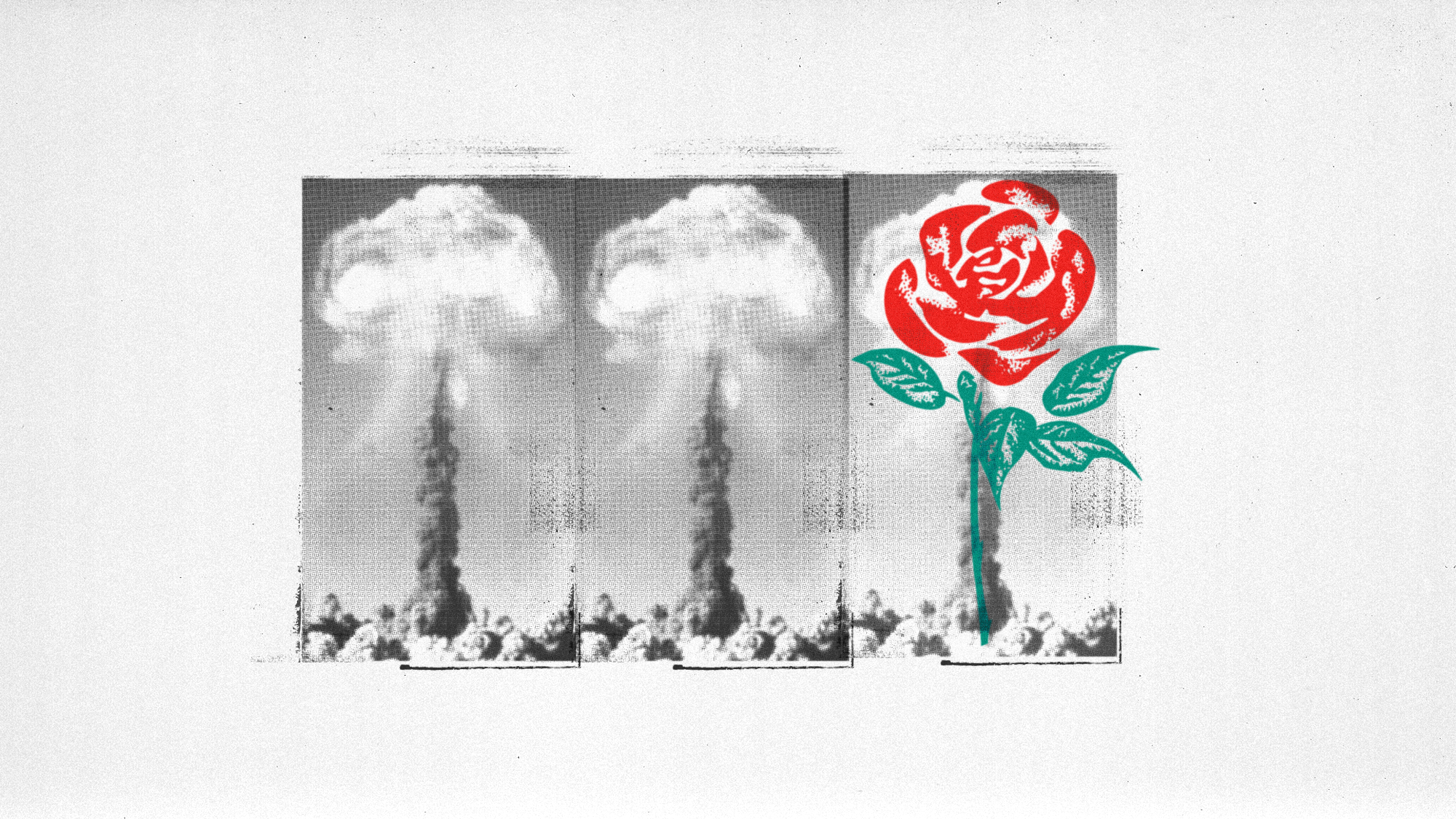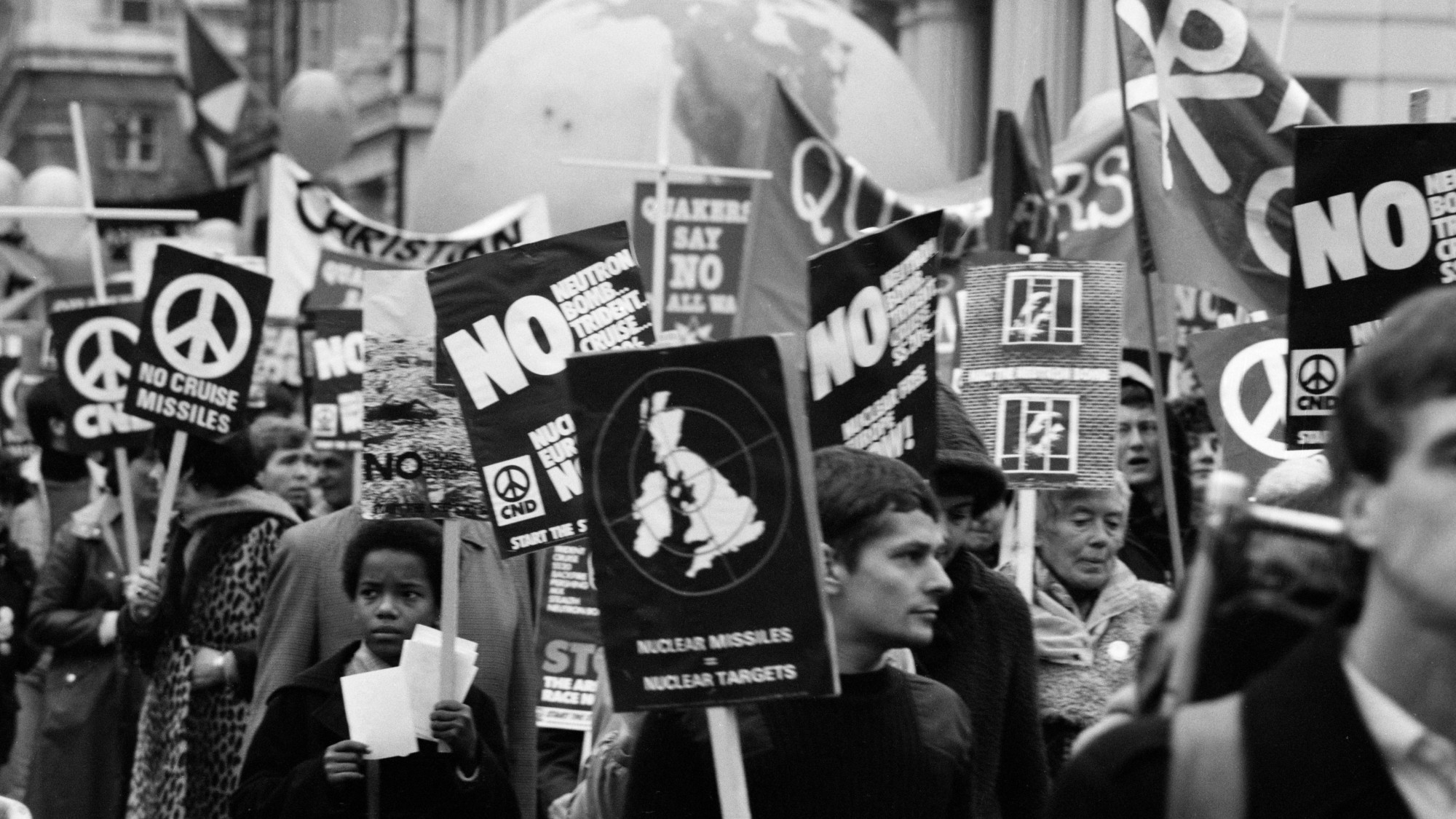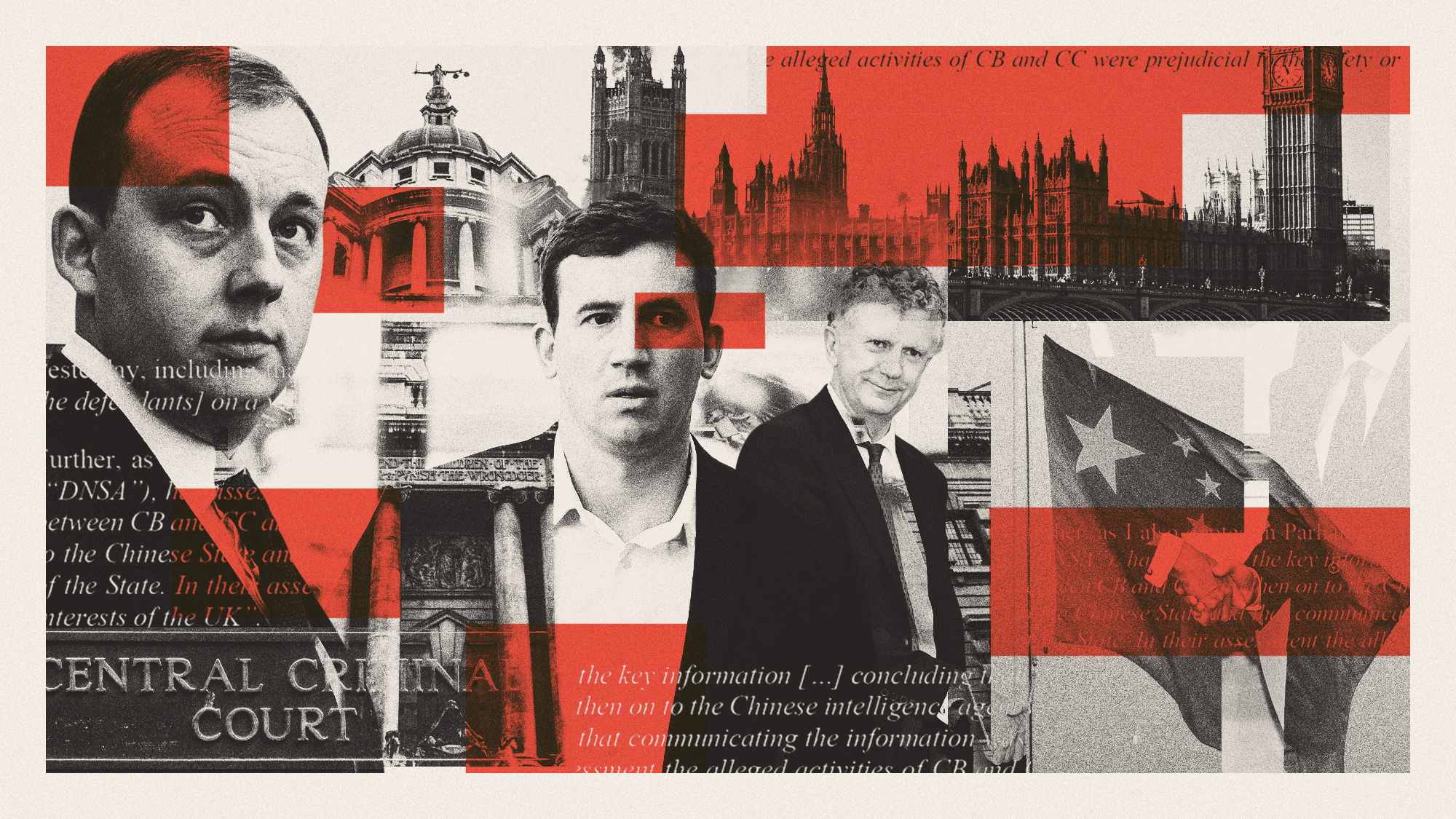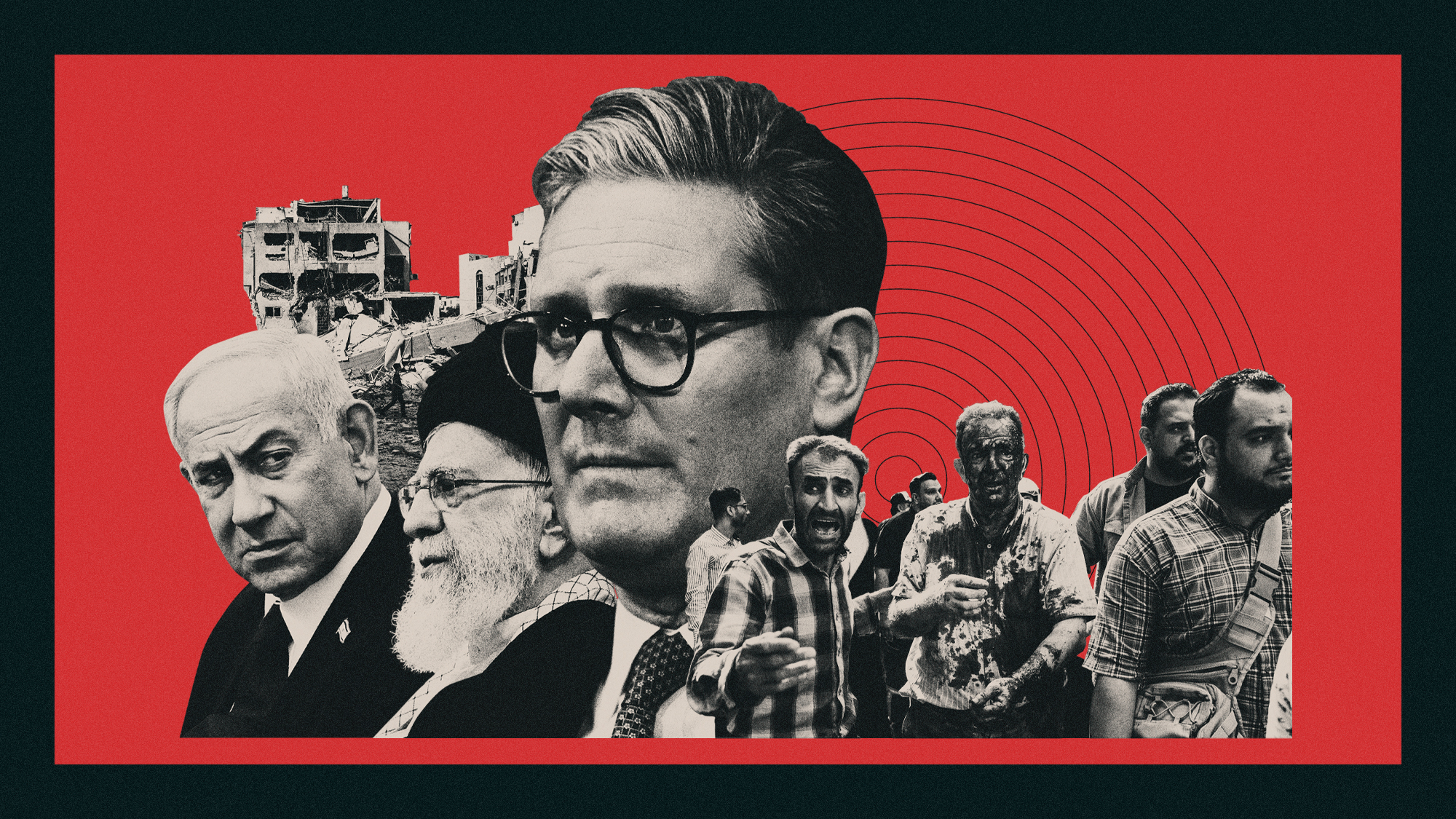Labour and nuclear weapons: a turbulent ideological history
From the 1940s to Keir Starmer, the party leadership has zigzagged in and out of love with the bomb

A free daily email with the biggest news stories of the day – and the best features from TheWeek.com
You are now subscribed
Your newsletter sign-up was successful
"We've got to have this thing over here, whatever it costs," Labour's then foreign secretary Ernest Bevin reportedly said in the 1940s, and "we've got to have the bloody Union Jack on top of it".
That "thing" was the atomic bomb, but since being acquired by the UK, nuclear weapons have been a "divisive issue" within Labour, said the BBC.
Anti-nuke 'fixture'
Michael Foot, who became Labour leader in 1980, was a founder member of the Campaign for Nuclear Disarmament (CND) and "a fixture at anti-nuclear demonstrations", said socialist magazine Tribune.
When Neil Kinnock took over as leader in 1983, the party's policy, which he supported, was unilateral nuclear disarmament and the removal of all US nuclear weapons and bases from British soil. But this policy was only supported by a minority of the British public, and Labour lost the 1987 general election.
The Week
Escape your echo chamber. Get the facts behind the news, plus analysis from multiple perspectives.

Sign up for The Week's Free Newsletters
From our morning news briefing to a weekly Good News Newsletter, get the best of The Week delivered directly to your inbox.
From our morning news briefing to a weekly Good News Newsletter, get the best of The Week delivered directly to your inbox.
By 1989, Kinnock had convinced the party to drop these policies, but "many" on the Labour left remain "vehemently opposed" to that decision, said the BBC.
Previously 'unthinkable'
As a young MP, Tony Blair was a member of CND, but he was never strongly in favour of unilateral disarmament, and as party leader, he was on board with the party's pro-nuclear policy.
Blair announced in 2006 that Britain would maintain its nuclear deterrent, because "we cannot be sure that a major nuclear threat to our vital interests will not emerge over the longer term".
In his memoir "A Journey", Blair said that he "hesitated" over his decision to retain and replace the Trident nuclear weapons system, however. It is "frankly inconceivable we would use our nuclear deterrent alone, without the US", he wrote. But it would have been a "big step to put that beyond your capability as a country".
A free daily email with the biggest news stories of the day – and the best features from TheWeek.com
He added that before deciding, he "had a perfectly good and sensible discussion about it" with then chancellor Gordon Brown, who was "similarly torn". After Brown succeeded Blair in No. 10, he stuck with the party's policy. But, in a speech in 2009, Brown said that "the power of international cooperation" could enable nations to achieve the "previously unthinkable" aim of global nuclear disarmament, said Rusi.
A 'nuclear-free world'
Like Foot and Blair, Jeremy Corbyn was also a CND member, rising up to be vice-president of the campaign group before he became party leader in 2015. Corbyn told BBC Radio 4's "Today" programme that if he became prime minister, he would instruct the UK's defence chiefs never to use the Trident nuclear weapons system.
"I am opposed to the use of nuclear weapons," he said. "I am opposed to the holding of nuclear weapons. I want to see a nuclear-free world. I believe it is possible.”
Corbyn added that while there were "five declared nuclear weapon states in the world", 187 countries "don't feel the need" to have nuclear weapons to protect their security. "Why should those five need it themselves?" he asked, noting that the Cold War was over.
'Unshakeable'
Corbyn's successor, Keir Starmer, has moved the party back to a staunchly pro-nuclear policy. In an article in the Daily Mail last week, he said that his commitment to the UK's nuclear weapons was "unshakeable" and "absolute". Labour is now "utterly committed to our nation's defence", he wrote, and would make sure "our nuclear deterrent is properly equipped and armed to face the challenges of the decades to come".
Asked by ITV News if he would be willing to push the nuclear button as PM if Britain were under attack, Starmer said that "deterrence only works if there is a preparedness to use it".
Chas Newkey-Burden has been part of The Week Digital team for more than a decade and a journalist for 25 years, starting out on the irreverent football weekly 90 Minutes, before moving to lifestyle magazines Loaded and Attitude. He was a columnist for The Big Issue and landed a world exclusive with David Beckham that became the weekly magazine’s bestselling issue. He now writes regularly for The Guardian, The Telegraph, The Independent, Metro, FourFourTwo and the i new site. He is also the author of a number of non-fiction books.
-
 The year’s ‘it’ vegetable is a versatile, economical wonder
The year’s ‘it’ vegetable is a versatile, economical wonderthe week recommends How to think about thinking about cabbage
-
 Moltbook: The AI-only social network
Moltbook: The AI-only social networkFeature Bots interact on Moltbook like humans use Reddit
-
 Judge orders Washington slavery exhibit restored
Judge orders Washington slavery exhibit restoredSpeed Read The Trump administration took down displays about slavery at the President’s House Site in Philadelphia
-
 New START: the final US-Russia nuclear treaty about to expire
New START: the final US-Russia nuclear treaty about to expireThe Explainer The last agreement between Washington and Moscow expires within weeks
-
 What would a UK deployment to Ukraine look like?
What would a UK deployment to Ukraine look like?Today's Big Question Security agreement commits British and French forces in event of ceasefire
-
 Would Europe defend Greenland from US aggression?
Would Europe defend Greenland from US aggression?Today’s Big Question ‘Mildness’ of EU pushback against Trump provocation ‘illustrates the bind Europe finds itself in’
-
 The history of US nuclear weapons on UK soil
The history of US nuclear weapons on UK soilThe Explainer Arrangement has led to protests and dangerous mishaps
-
 Vladimir Putin’s ‘nuclear tsunami’ missile
Vladimir Putin’s ‘nuclear tsunami’ missileThe Explainer Russian president has boasted that there is no way to intercept the new weapon
-
 Why did the China spying case collapse?
Why did the China spying case collapse?Today’s Big Question Unwillingness to call China an ‘enemy’ apparently scuppered espionage trial
-
 Operation Rubific: the government's secret Afghan relocation scheme
Operation Rubific: the government's secret Afghan relocation schemeThe Explainer Massive data leak a 'national embarrassment' that has ended up costing taxpayer billions
-
 Will the UK get involved in the Israel-Iran conflict?
Will the UK get involved in the Israel-Iran conflict?Today's Big Question Keir Starmer is 'walking a tightrope' in helping Israel limit Tehran's nuclear capabilities without being seen to do so